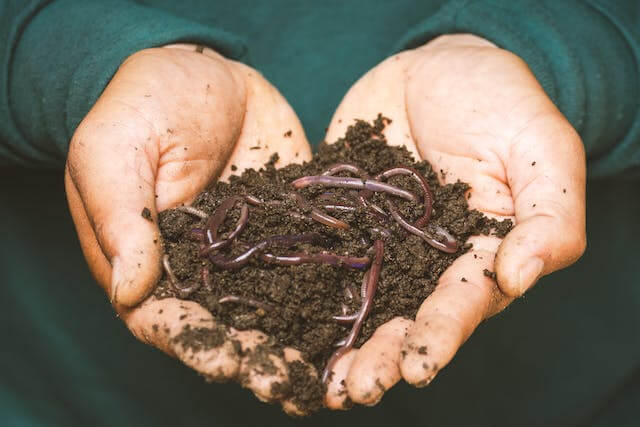
The short answer is ‘no’. Worms are good for lawns, but worm casts are bad.
There are lots of worms in the UK, including 27 different species of earthworm. They can all help with soil health. The question is: can earthworms also be bad for lawns?
Are Earthworms Good for Your Lawn?
Yes, in short. Earthworms have a net positive impact on the health of a lawn. Earthworms aerate the soil as they move through it, loosening the compacted dirt and helping water and air circulate around the roots of your grass.
Earthworms also eat their way through decaying organic material, which helps it decompose and provide nutrients to your lawn.
Unfortunately, while doing so, earthworms can expel small heaps of soil onto the surface of your lawn, known as “worm casts”. These are unsightly, but otherwise totally normal. In fact, worm casts are indicative of your lawn being in good health.
How to Get Rid of Worm Casts
Autumn and winter bring damp weather, leading to an increase in worm activity, which means you’ll probably see more worm casts on your lawn at this time of year.
Although worm activity is beneficial for your lawn, worm casts are not. Not only are they somewhat unsightly, they can be smeared around all too easily if not allowed to dry. This can create an ideal environment for the establishment of weeds and mosses.
So, how do you get rid of worm casts and prevent them from enabling moss and weed growth?
Worm Cast Control
If they have a chance to dry, removing worm casts is as simple as using a brush or a dense rake to brush dirt back over the lawn, and then mowing the grass so that the casts are pressed down into the soil again. After all, a worm cast is simply regurgitated soil, so it’s not a hazardous material.
Applying a layer of topsoil will help smooth out the lumps and bumps caused by too many worm casts, and can even help revive plants that might have withered due to worm activity near their roots.
The key to worm cast control is prevention, with which regular lawn maintenance is a great help. Part of this is removing organic matter such as fallen leaves and grass clippings from your lawn. Earthworms feed on this matter, so removing it will drive them further underground and prevent worm casts from appearing on the surface of your lawn.
Scarification and aeration will also help. Earthworms like damp, compact soil, which aeration prevents, while scarification removes the organic matter like thatch that they use as a food source.
Here at Lawn & Weed Expert, we don’t just deal with worm casts. We are experts in many different forms of lawn pest management. If you’re worried about pests in your garden, don’t hesitate to contact us.
Request a FREE Survey